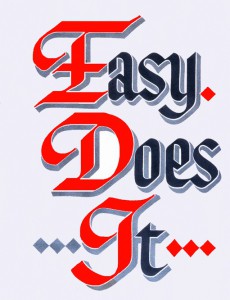Founding Policies
 AAS2RWW Founding Statements & Policies:
AAS2RWW Founding Statements & Policies:
Every AA group has a different ‘style’. All A.A. groups are “autonomous” with a unique style. Some want more structure, some less. If you feel comfortable with our” style,” then join us.
The Founding Policies of AA Steps to Recovery Worldwide:
1.) These Founding Policies are subject to amendment by substantial unanimity of the full membership of AAS2RWW. Amendments are defined as changes in core policies and will be added to the end of this list of policies. Substantial unanimity is defined to be the same as that required to change the Steps, Traditions or Concepts at the A.A. Fellowship level: 75% of all members must affirm the change. Ref: Traditions: One, Four and Nine.
2.) AAS2RWW is a closed A.A. group. Prospective members must affirm their qualifications to join A.A. according to the “long form” of the Third Tradition, prior to joining this A.A. group.
3.) Anonymity is the spiritual foundation of all A.A. Traditions. Repeating of personal shares for outside purposes is considered a violation of Traditions Eleven & Twelve. This closed group protects anonymity.
4.) AAS2RWW follows the Twelve Traditions as closely as possible; focusing on our similarities with face-to-face meetings and the general fellowship, rather than focusing on our differences. Ref. Tradition One.
5.) AAS2RWW recognizes and accepts that the A.A. fellowship, as a whole, has not yet determined how and where Internet electronic meetings fit into the structure of the fellowship. In the spirit of unity and the 4th Tradition, AAS2RWW will cooperate with A.A. World Services Office in the search for a solution.
6.) The Group Conscious: A group conscious is the voice of the meeting. The definition of a group conscious may vary according to the issue before the business meeting. At AAS2RWW, taking the group conscious will follow these guidelines: Ref.: Traditions One, Two, Four, and Nine.
(a.) Amendment to Founding Policies is defined above.
(b.) Substantive changes to the meeting which affects the majority of the membership, require a two-thirds majority of voting members.
(c.) Minorchanges to the meeting which do not affect the majority of the membership, require a simple majority of the voting membership.
(d.) Elections of trusted servants will adopt the election procedure as described in the A.A. Service Manual (Elections of AAWS delegates) except that a majority vote will elect a trusted servant at AAS2RWW.
(e.) A waiting period of 7 days will be available following each announcement: motions before the business meeting, trusted servant vacancy alerts, and balloting period. No one may hold more than one service position simultaneously or consecutive terms without the explicit approval of the Steering Committee or by the majority vote
of the business meeting.
(7.) AA is a spiritual program: discussion of specific outside enterprises, issues, political or religious tenets or any controversy has no place here. Ref.: Traditions Six & Ten.
(8.) AA Literature is known as AA World Services Conference Approved Literature ( CAL): discussion of non-AA literature is discouraged. Ref.: Traditions Six and Ten.
(9.) No Flaming or Flame Trolling . Disciplinary/ Netiquette issues will be addressed by List_Administrator for general membership, and by the Steering Committee for repeat offenders or trusted servant issues or problems as per: Traditions One, Four and Nine.
(10.) List Administrator subscribes individuals by the direction of the Greeter or unsubscribes individuals by direction of the member or at the direction of the Steering Committee. List Administrator will immediately unsubscribe anyone who violates list/server security. Ref.: Traditions One, Four and Nine.
(11.) The Steering Committee is composed of business members : Chairs of Offices, Committees, the founders (the original founders of AAS2RWW, or nearly so, and two general members of AAS2RWW. Ref. Traditions Four and Nine.
(12.) Only the Steering Committee has jurisdiction over issues of member/trusted servant conduct; the Steering Committee has the authority to unsubscribe individuals (or remove trusted servants from office) who somehow violate Group Policy so that the Group needs them to leave. Ref. Traditions One, Four and Nine.